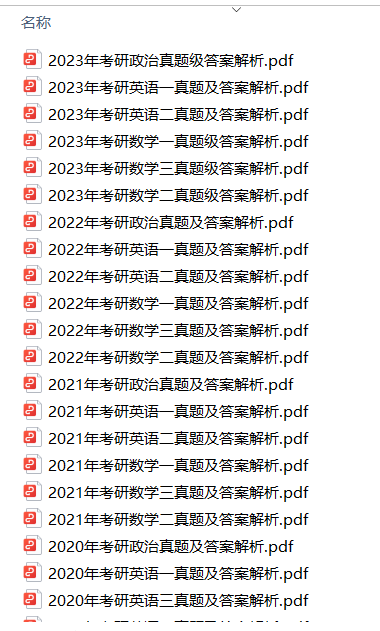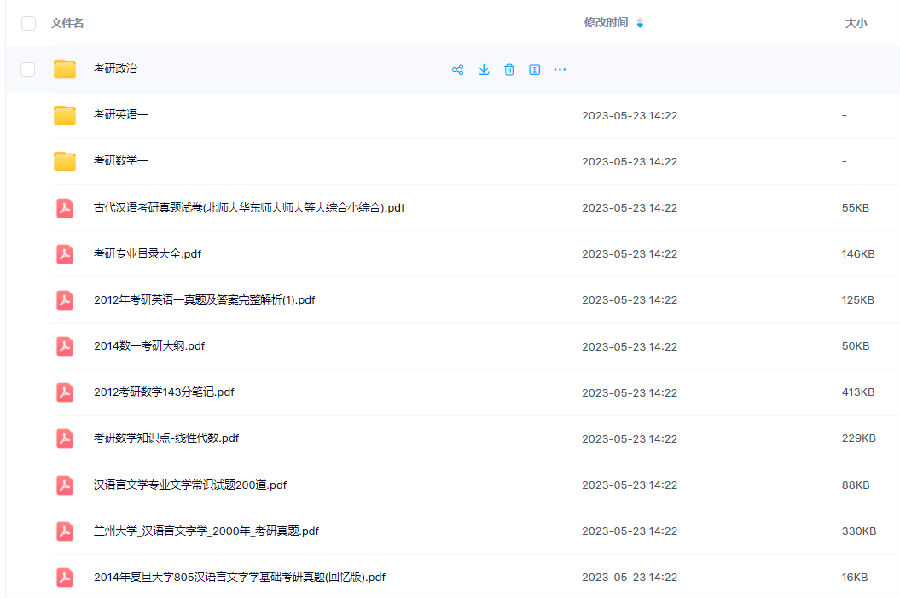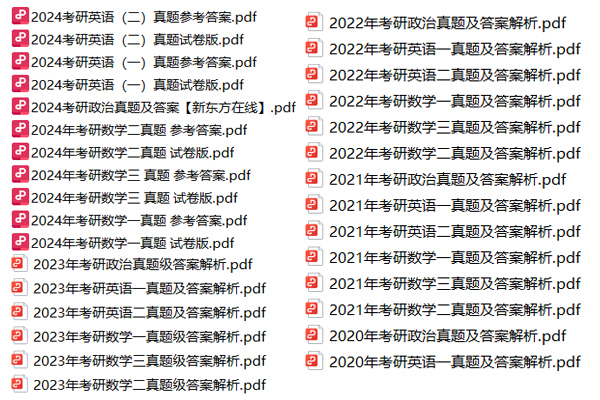特惠-26考研冲刺
特惠-27考研课
双证-在职硕士
免联考-同等学力
复试分数线
26复试全面指导
模拟复试面试
26考研-全套真题
26考研估分
保研-路线图
27考研-智能择校
27考研-英语测评
27考研-新大纲对比
热门-计算机择校

扫码加入训练营
牢记核心词
学习得礼盒
2015考研英语复习正在如火如荼的进行中,考研专家建议可以按考研题型分别进行重点复习,考研英语阅读理解是考研英语中分值最高的,新东方在线小编特地整理了2015考研英语阅读理解模拟试题供大家模拟练习,希望大家认真做题,错题着重看解析及译文,经过练习阅读理解能力必能有所提高。
四十四、美国经济的复苏
Positive surprises from government reports on retail sales, industrial production, and housing in the past few months are leading economists to revise their real gross domestic product (GDP) forecasts upward supporting the notion that the recession ended in December or January.
Bear in mind: This recovery won’t have the vitality normally associated with an upturn. Economists now expect real GDP growth of about 1.5 in the first quarter. That’s better than the 0.4 the consensus projected in December, but much of the additional growth will come from a slower pace of inventory drawdowns, not from surging demand.
Moreover, the economy won’t grow fast enough to help the labor markets much. The only good news there is that jobless claims have fallen back from their spike after September 11 and that their current level suggests the pace of layoffs is easing.
The recovery also does not mean the Federal Reserve will raise interest rates soon. The January price indexes show that inflation remains tame. Consequently, the Fed can take its time shifting monetary policy from extreme accommodation to relative neutrality.
Perhaps the best news from the latest economic reports was the January data on industrial production. Total output fell only 0.1, its best showing since July. Factory output was flat, also the best performance in six months. Those numbers may not sound encouraging, but manufacturers have been in recession since late 2000. The data suggest that the factory sector is finding a bottom from which to start its recovery.
Production of consumer goods, for instance, is almost back up to where it was a year ago. That’s because consumer demand for motor vehicles and other goods and the housing industry remained healthy during the recession, and they are still growing in early 2002.
Besides, both the monthly homebuilding starts number and the housing market index for the past two months are running above the averages for all of 2001, suggesting that home-building is off to a good start and probably won’t be big drag on GDP growth this year.
Equally important to the outlook is how the solid housing market will help demand for home-related goods and services. Traditionally, consumers buy the bulk of their furniture, electronics, and textiles within a year of purchasing their homes. Thus, spending on such items will do well this year, even as car sales slip now that incentives are less attractive. Look for the output of consumer goods to top year-ago level in coming months.
Even the business equipment sector seems to have bottomed out. Its output rose 0.4% in January, led by a 0.6% jump computer gear. A pickup in orders for capital goods in the fourth quarter suggests that production will keep increasing—although at a relaxed pace—in coming months.
1.American economists are surprised to see that.
[A] they have to revise the GDP forecasts so often [B] their government is announcing the end of a recession
[C] US economy is showing some signs of an upturn [D] GDP growth reflects stronger domestic demand
2.The most encouraging fact about the US economy is that .
[A] employment rates have risen faster than expected [B] the Federal Reserve will raise interest rates soon
[C] industrial production is reaching its lowest point [D] some economic sectors have become leading industries
3.Of which of the following did the author provide a guardedly optimistic view?
[A] GDP growth. [B] The number of layoffs. [C] Price indexes. [D] Output of consumer goods.
4.Which of the following is the guarantee of a better future for US economy?
[A] Motor vehicles. [B] Housing market. [C] Business equipment. [D] Computer gear.
5.Which of the following best summarizes the U. S. economic situation today?
[A] American economists are painting a gloomy picture.
[B] It is slowly warming up with moderate growth.
[C] Recession may come back anytime in the coming months.
[D] Most sectors are picking up at a surprisingly fast pace.
答案:1.C 2.C 3.A 4.B 5.B
核心词汇或超纲词汇
(1)recession(n.)撤回,退回;不景气,工商业衰退期
(2)upturn(n.)好转;副词+动词=复合名词,如:output结果overthrow推翻upkeep保养
(3)consensus(n.)一致同意;舆论
(4)inventory(n.)存货;详细目录
(5)drawdown(n.)水位降低;耗尽;动词+副词=复合名词,如:lookout留心layoff临时解雇
(6)spike(n.)长钉;曲线的尖头部分,峰值(v.)用大钉钉;阻止,挫败
(7)The bulk of大部分,大半
(8)incentive(n.)刺激,鼓励;动机(a.)起刺激或鼓励作用的;incent(v.)刺激;激励
全文翻译
过去几个月里政府有关零售、工业生产和和房产的报告带来的意外惊喜使经济学家对国民生产总值(GDP)的预测上调,从而支持了经济衰退期已在12月或1月终止的观点。
记住:这次经济复苏不具有通常经济好转所具有的活力。经济学家现在预计第一季度里真正的GDP增长率约为1.5%。这比11月一致估计的0.4%要好,但是GDP增长大多是因为存货提用的速度减缓,而不是需求的增长。
而且,经济的增长没有快到可以很大程度上改善劳动力市场。惟一的好消息是申请失业保险金人数在9.11事件后达到的高峰期开始回落,现在的水平表明失业的速度有所缓和。
经济复苏并不意味着美联储将很快提高利率。1月的价格指数表明通货膨胀仍然很缓和。这样,美联储可以从容不迫地将货币政策从极度宽松转向相对中性化。
最近的经济报道中最好的消息也许来自1月份工业生产的数据。整个的生产量只下降了0.1%,是自7月以来最好的表现。工厂生产量平稳,也是六个月中最好的表现。这些数据也许听起来并不让人兴奋,但生产业自2000年后期一直处于衰退之中。这些数据表明工业生产部门的产量正在达到底线,复苏即将开始。
比如,消费品的生产几乎回到了一年前的水平。这是因为对汽车及其他物品的消费需求以及房屋产业在经济衰退期间都保持了健康发展,而且在2002年初仍然在增长。
此外,过去两个月中每月房屋建造和房产市场指数都在整个2001年的平均数以上。这表明房屋建造有了好的开始,可能不会成为今年GDP增长的累赘。
对于经济前景同样重要的是稳固的房产市场将有利于刺激对房屋相关物品和服务的需求。传统消费者在置家后的一年内会购买大部分家具、电子产品和纺织品。因此,今年在这些物品上的消费将看好。甚至现在当汽车销售下滑时,这些商品刺激也没有失去吸引力。期望消费商品的产量在未来的月份里超越年前的水平。
甚至办公设备部门的生产似乎也要降至最低点。它的产量因电脑设备0.6%的涨幅在1月上升了0.4%。第四季度里资本物品订购的上升表明未来的月份里生产的速度虽然缓慢但仍将继续上升。
八月伊始,部分高校2015年考研招生简章已经发布,请广大15年考生关注,预计到8月底9月初,2015年全国硕士研究生招生简章会陆续发布完成,新东方在线小编第一时间跟踪发布,请大家收藏关注!另有研究生专业目录、考研参考书等最新考研信息,帮助考生及时了解目标院校招生政策及信息。
【英语阅读资料】这里有↑↑↑

 资料下载
资料下载
2014年-2025年考研历年真题汇总
发布时间:2024-04-25扫码添加【考研班主任】
即可领取资料包
考研大纲PDF电子版下载-历年(附解析)
发布时间:2024-04-25扫码添加【考研班主任】
即可领取资料包
2026年考研政数英备考资料zip压缩包
发布时间:2024-04-25扫码添加【考研班主任】
即可领取资料包
考研英语大纲词汇5500打印版(基础必备)
发布时间:2024-04-25扫码添加【考研班主任】
即可领取资料包
新东方在线考试模拟题【12套】
发布时间:2024-04-25扫码添加【考研班主任】
即可领取资料包
2026年考研专业课知识点总结
发布时间:2024-04-25扫码添加【考研班主任】
即可领取资料包
新东方考研资料下载地址
发布时间:2023-05-17新东方在线考研资料合集
下载方式:微信扫码,获取网盘链接

目录:
1.2013-2023年近10年政数英真题及解析PDF版(新东方)
2.2013-2023年专业课考试历年真题及解析PDF版
3.24考研复习备考资料大合集:大纲+备考资料+词汇书+考前押题+自命题
资料介绍:
1.2013-2023年近10年政数英真题及解析PDF版(新东方)
 、
、
2.2013-2023年专业课考试历年真题及解析PDF版


3.24考研复习备考资料大合集

3.24考研复习备考资料:考研大纲

3.24考研复习备考资料:政数英备考资料+自命题真题

------------------
考研备考过程中,尤其是专业课部分,参考往年的考试真题,对于我们的复习有更好的帮助。北京大学考研真题资料都有哪些?小编为大家进行了汇总。
北京大学考研真题资料-公共课

北京大学考研真题资料-专业课


以上就是关于“北京大学考研真题资料下载(历年汇总)”的整理,更多考研资料下载,请关注微信获取下载地址。
2024考研公共课必背知识点汇总
发布时间:2023-01-03扫码添加【考研班主任】
即可领取资料包
2013-2023考研历年真题汇总
发布时间:2023-01-03扫码添加【考研班主任】
即可领取资料包
考研英语大纲词汇(PDF可打印)
发布时间:2023-01-03扫码添加【考研班主任】
即可领取资料包
2024考研专业课知识点总结
发布时间:2023-01-03扫码添加【考研班主任】
即可领取资料包
2023考研政治 内部押题 PDF
发布时间:2022-11-16扫码添加【考研班主任】
即可领取资料包
徐涛:23考研预测六套卷
发布时间:2022-11-16扫码添加【考研班主任】
即可领取资料包
考研政数英冲刺资料最新整理
发布时间:2022-11-16扫码添加【考研班主任】
即可领取资料包
23考研答题卡模板打印版
发布时间:2022-11-16扫码添加【考研班主任】
即可领取资料包
2023考研大纲词汇5500PDF电子版
发布时间:2022-07-28扫码添加【考研班主任】
即可领取资料包
考研历年真题(公共课+专业课)
发布时间:2022-07-28扫码添加【考研班主任】
即可领取资料包
考研英语阅读100篇附解析及答案
发布时间:2022-01-07扫码添加【考研班主任】
即可领取资料包
新东方考研学霸笔记整理(打印版)
发布时间:2022-01-07扫码添加【考研班主任】
即可领取资料包
2001-2021年考研英语真题答案(可打印版)
发布时间:2022-01-07扫码添加【考研班主任】
即可领取资料包
考研英语词汇5500(完整版下载)
发布时间:2022-01-07扫码添加【考研班主任】
即可领取资料包
2022考研政审表模板精选10套
发布时间:2022-01-07扫码添加【考研班主任】
即可领取资料包
历年考研真题及答案 下载
发布时间:2021-12-09扫码添加【考研班主任】
即可领取资料包
考研政审表模板汇总
发布时间:2020-06-17扫码添加【考研班主任】
即可领取资料包
近5年考研英语真题汇总
发布时间:2020-06-17扫码添加【考研班主任】
即可领取资料包
考研英语大纲词汇5500
发布时间:2020-06-17扫码添加【考研班主任】
即可领取资料包
2022考研12大学科专业排名汇总
发布时间:2019-11-21扫码添加【考研班主任】
即可领取资料包
2023考研政治复习备考资料【珍藏版】
发布时间:2019-11-21扫码添加【考研班主任】
即可领取资料包
考研英语万能模板+必备词汇+范文
发布时间:2019-11-21扫码添加【考研班主任】
即可领取资料包
考研数学一、二、三历年真题整理
发布时间:2019-11-21扫码添加【考研班主任】
即可领取资料包

添加班主任领资料
添加考研班主任
免费领取考研历年真题等复习干货资料

 推荐阅读
推荐阅读
为了让考研的同学更高效地复习考研英语,新东方在线考研频道整理了“考研英语1阅读错几个后的复习计划”,考研的同学可以了解一下,希望对大家有所帮助。
为了让考研的同学更高效地复习考研英语,新东方在线考研频道整理了“考研英语二阅读篇数及题型分析”,考研的同学可以了解一下,希望对大家有所帮助。
为了让考研的同学更高效地复习考研英语,新东方在线考研频道整理了“考研英语阅读理解的总结与反思”,考研的同学可以了解一下,希望对大家有所帮助。
来源 : 网络 2025-06-13 08:02:00 关键字 : 考研英语阅读理解
为了让考研的同学更高效地复习考研英语,新东方在线考研频道整理了“提高考研英语一阅读理解的五大策略”,考研的同学可以了解一下,希望对大家有所帮助。
为了让考研的同学更高效地复习考研英语,新东方在线考研频道整理了“探索考研英语阅读文章的逻辑结构”,考研的同学可以了解一下,希望对大家有所帮助。
来源 : 网络 2025-06-12 08:03:00 关键字 : 考研英语阅读

 资料下载
资料下载
扫码添加【考研班主任】
即可领取资料包
扫码添加【考研班主任】
即可领取资料包
扫码添加【考研班主任】
即可领取资料包
扫码添加【考研班主任】
即可领取资料包
扫码添加【考研班主任】
即可领取资料包
扫码添加【考研班主任】
即可领取资料包
新东方在线考研资料合集
下载方式:微信扫码,获取网盘链接

目录:
1.2013-2023年近10年政数英真题及解析PDF版(新东方)
2.2013-2023年专业课考试历年真题及解析PDF版
3.24考研复习备考资料大合集:大纲+备考资料+词汇书+考前押题+自命题
资料介绍:
1.2013-2023年近10年政数英真题及解析PDF版(新东方)
 、
、
2.2013-2023年专业课考试历年真题及解析PDF版


3.24考研复习备考资料大合集

3.24考研复习备考资料:考研大纲

3.24考研复习备考资料:政数英备考资料+自命题真题

------------------
考研备考过程中,尤其是专业课部分,参考往年的考试真题,对于我们的复习有更好的帮助。北京大学考研真题资料都有哪些?小编为大家进行了汇总。
北京大学考研真题资料-公共课

北京大学考研真题资料-专业课


以上就是关于“北京大学考研真题资料下载(历年汇总)”的整理,更多考研资料下载,请关注微信获取下载地址。
扫码添加【考研班主任】
即可领取资料包
扫码添加【考研班主任】
即可领取资料包
扫码添加【考研班主任】
即可领取资料包
扫码添加【考研班主任】
即可领取资料包
扫码添加【考研班主任】
即可领取资料包
扫码添加【考研班主任】
即可领取资料包
扫码添加【考研班主任】
即可领取资料包
扫码添加【考研班主任】
即可领取资料包
扫码添加【考研班主任】
即可领取资料包
扫码添加【考研班主任】
即可领取资料包
扫码添加【考研班主任】
即可领取资料包
扫码添加【考研班主任】
即可领取资料包
扫码添加【考研班主任】
即可领取资料包
扫码添加【考研班主任】
即可领取资料包
扫码添加【考研班主任】
即可领取资料包
扫码添加【考研班主任】
即可领取资料包
扫码添加【考研班主任】
即可领取资料包
扫码添加【考研班主任】
即可领取资料包
扫码添加【考研班主任】
即可领取资料包
扫码添加【考研班主任】
即可领取资料包
扫码添加【考研班主任】
即可领取资料包
扫码添加【考研班主任】
即可领取资料包
扫码添加【考研班主任】
即可领取资料包

 阅读排行榜
阅读排行榜
 相关内容
相关内容